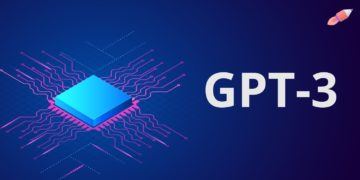by Fabio Tollon

It is becoming increasingly common to talk about technological systems in agential terms. We routinely hear about facial recognition algorithms that can identify individuals, large language models (such as GPT-3) that can produce text, and self-driving cars that can, well, drive. Recently, Forbes magazine even awarded GPT-3 “person” of the year for 2020. In this piece I’d like to take some time to reflect on GPT-3. Specifically, I’d like to push back against the narrative that GPT-3 somehow ushers in a new age of artificial intelligence.
GPT-3 (Generative Pre-trained Transformer) is a third-generation, autoregressive language model. It makes use of deep learning to produce human-like texts, such as sequences of words (or code, or other data) after being fed an initial “prompt” which it then aims to complete. The language model itself is trained on Microsoft’s Azure Supercomputer, uses 175 billion parameters (its predecessor used a mere 1.5 billion) and makes use of unlabeled datasets (such as Wikipedia). This training isn’t cheap, with a price tag of $12 million. Once trained, the system can be used in a wide array of contexts: from language translation, summarization, question answering, etc.
Most of you will recall the fanfare that surrounded The Guardians publication of an article that was written by GPT-3. Many people were astounded at the text that was produced, and indeed, this speaks to the remarkable effectiveness of this particular computational system (or perhaps it speaks more to our willingness to project understanding where there might be none, but more on this later). How GPT-3 produced this particular text is relatively simple. Basically, it takes in a query and then attempts to offer relevant answers using the massive amounts of data at its disposal to do so. How different this is, in kind, from what Google’s search engine does is debatable. In the case of Google, you wouldn’t think that it “understands” your searches. With GPT-3, however, people seemed to get the impression that it really did understand the queries, and that its answers, therefore, were a result of this supposed understanding. This of course lends far more credence to its responses, as it is natural to think that someone who understands a given topic is better placed to answer questions about that topic. To believe this in the case of GPT-3 is not just bad science fiction, it’s pure fantasy. Let me elaborate. Read more »
